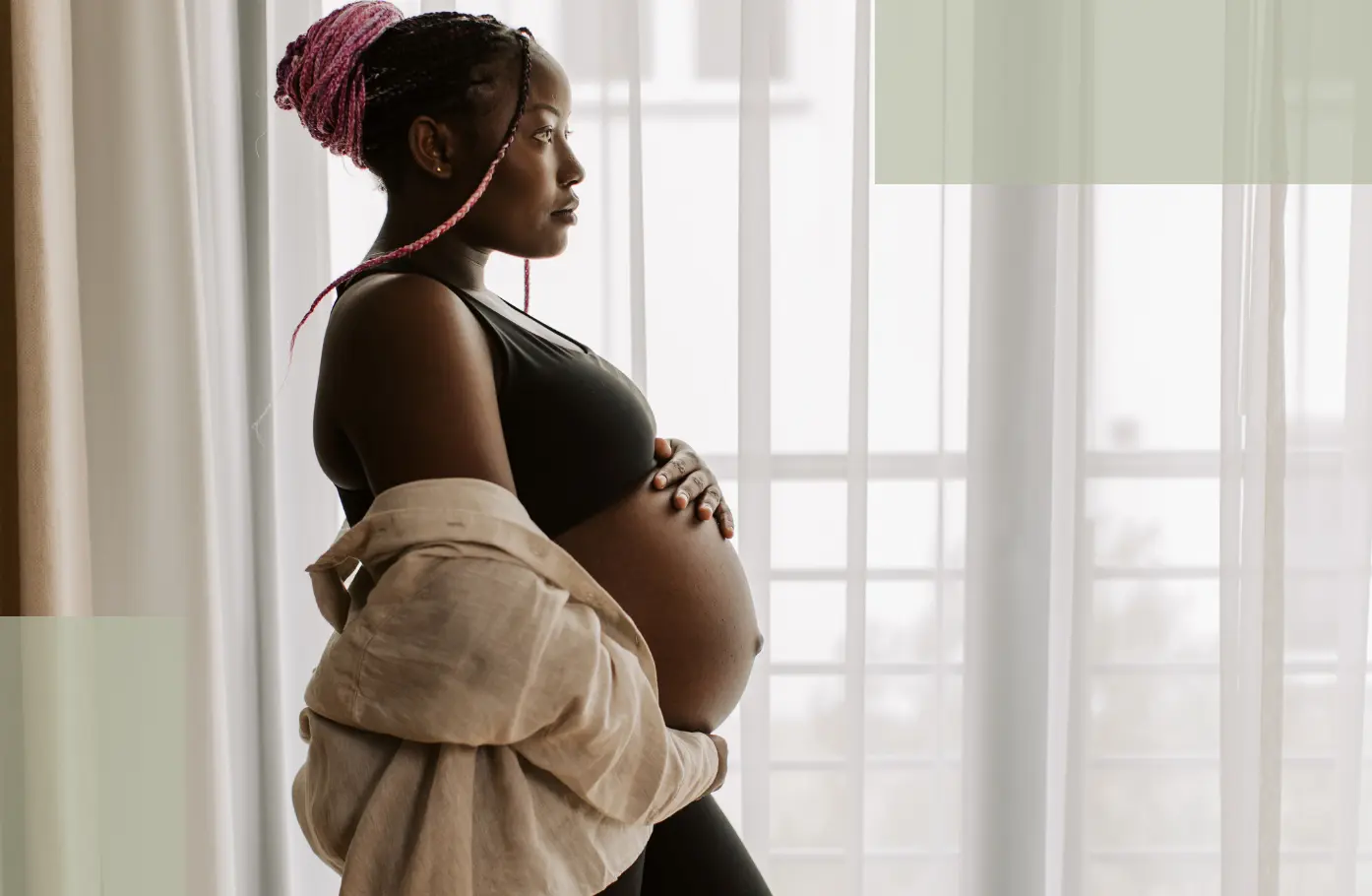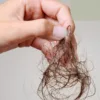Experiencing hair changes during pregnancy can feel unsettling—especially when expectations clash with reality. Some women enjoy thicker, fuller hair, while others notice unexpected shedding.
This guide will clarify common causes of pregnancy and postpartum hair loss and offer gentle, safe care tips—especially recommending products suited for sensitive scalps during pregnancy.
🤰 Why Hair Loss Happens in Pregnancy
Though less common than postpartum shedding, pregnancy hair loss can occur due to:
1. Hormonal Fluctuations
Early pregnancy can involve uneven estrogen and progesterone levels, triggering a shift of hair into the shedding (telogen) phase (American Pregnancy Association, 2024).
2. Nutritional Stress
The growing baby consumes nutrients—if levels of iron, zinc, protein, or vitamin D dip, hair can weaken (Medical News Today, 2021).
3. Emotional or Physical Stress
Stress responses during pregnancy can provoke telogen effluvium, leading to diffuse shedding (WebMD, 2023).
As you transition from pregnancy to the postpartum phase, consider a routine that supports both scalp and system. This article explains how to support postpartum hair recovery from the inside out with kinder shampoo choices and simple nutrition habits.
🌸 Understanding Postpartum Hair Loss
✅ Safe, Gentle Care: Products & Practices
1. Use a Sulfate-Free, Fragrance-Free Shampoo
Avoid stripping harsh detergents that irritate pregnancy-sensitive scalps.
Recommended:Evavitae Anti‑Hair Loss & Hair Growth Shampoo
- Dermatologist-tested
- Sulfate- & fragrance-free
- Contains biotin, panthenol, and amino acids
2. Apply a Lightweight, Hydrating Serum
To support scalp moisture and strengthen fragile follicles:
Recommended:Evavitae Hair Renewal Serum
- Contains nourishing oils like grape seed, argan, and avocado
- Enriched with biotin & vitamin E
- Free of essential oils and synthetic fragrances
3. Minimize Styling Stress
- Avoid heat tools & tight hairstyles
- Give air-drying a try
- Use a soft brush or wide-tooth comb when detangling
4. Support Hair from Within
Ensure your diet or prenatal vitamins include:
- Iron, zinc, protein, and vitamin D—all essential for hair structure and growth (WebMD, 2023)
- Hydrate well and manage stress—daily calm routines help reduce hormone-triggered shedding
❓ FAQs About Pregnancy Hair Loss
Q: Is hair loss during pregnancy normal?
Yes—it may occur. Common causes include hormones, nutrition, stress, or thyroid changes (American Pregnancy Association, 2024).
Q: When does postpartum shedding peak?
Around 3–6 months after birth, tapering off by 6–12 months (Medical News Today, 2021).
Q: Are hair oils or supplements safe now?
Consult your provider. Avoid essential oils, which aren’t all pregnancy-safe. Focus instead on dermatologist-tested, fragrance-free topical products and adequate nutrition.
📝 Quick Routine Summary
Step | Action | Recommended Product |
Shampoo | 2–3 times per week with sulfate-free wash | |
Serum | Apply after wash or on dry scalp for moisture | |
Styling | Minimize heat and tight styles | Soft brush, air-dry, wide-tooth comb |
Nutrition & Stress | Support with key nutrients and calming routines | Iron/protein-rich foods, meditation |
🧡 Final Thoughts
Hair changes during pregnancy and postpartum are very common and usually temporary. To protect your scalp and hair:
- Prioritize scalp-friendly, sulfate-free hair care
- Keep hydration gentle and consistent
- Support with sound nutrition and stress management
With careful, simple habits and the right safe products, you can help your hair—and your confidence—stay strong throughout this journey.
✨ Continue learning about prevention, early signs, and gentle recovery steps in the Hair Loss 101 Hub.
Explore gentle recovery steps and dermatologist insights in the Complete Postpartum Hair Regrowth Hub.
📚 References (APA Style)
- American Pregnancy Association. (2024). Hair loss during pregnancy. https://americanpregnancy.org/healthy-pregnancy/pregnancy-health-wellness/hair-loss-during-pregnancy/
- Medical News Today. (2021). Pregnancy hair changes: Growth, loss, and what to expect. https://www.medicalnewstoday.com/articles/pregnancy-hair
- WebMD. (2023). What to do if you have postpartum hair loss. https://www.webmd.com/baby/what-to-do-if-you-have-postpartum-hair-loss
Evavitae products are now available exclusively at www.evavitae.com.





Add comment
You must be logged in to post a comment.